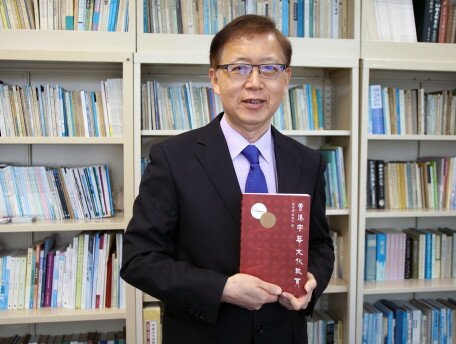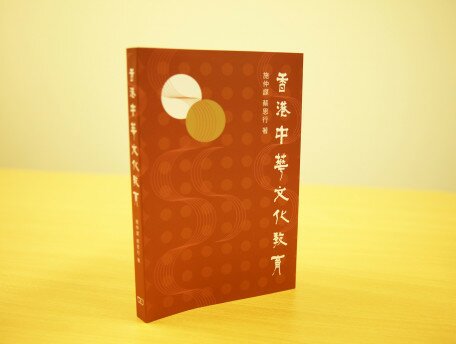EdUHK Launches Chinese Cultural Education in Hong Kong
To celebrate the achievements of the research project “The Past, Present and Future of Chinese Cultural Education in Hong Kong”, the Department of Chinese Language Studies (CHL) of The Education University of Hong Kong (EdUHK) today (5 November) published a book entitled Chinese Cultural Education in Hong Kong.
Co-authored by Professor Si Chung-mou, Head of CHL, and Dr Henry Choi Sze-hang, Editor-in-Chief of the Hong Kong Chronicles Institute, the book is divided into four sections and is based on years of data collected in Hong Kong. It opens with an overview of Chinese education in Hong Kong and an analysis of the relationship between language and culture, followed by another section featuring case studies of primary and secondary schools, higher education institutions, and relevant non-governmental organisations. The book goes on to discuss the unique models adopted by local schools and their effectiveness in promoting Chinese cultural education. It also investigates future trends in Chinese cultural education from the perspective of international Chinese education.
As a cosmopolitan city where Eastern and Western cultures converge, Hong Kong preserves the traditions of Chinese culture, while allowing the co-existence of elements of Western culture. To help students cope with societal needs, the local education sector has placed great emphasis on the promotion of bi-literacy and tri-lingualism. To this end, Chinese language education in Hong Kong has always focused on the practical skills of listening, speaking, reading and writing, with great emphasis on examination preparation.
Professor Si added that classical Chinese learning should be reinforced not only to enhance students’ Chinese language competence, but also to facilitate their understanding of Chinese culture. ‘Modern Chinese is derived from classical Chinese. For example, many commonly used idioms in modern Chinese originated from the classical language. Therefore, studying classical Chinese helps students broaden their horizons, and reflect on the traditional virtues and values orienting our daily interaction with others”, he said.
Looking into the school mottos of nearly 1,100 primary and secondary schools in Hong Kong, this project team discovered that more than half in some way embody the teachings of Confucianism, such as “Letters, ethics, devotion and trustfulness”(文行忠信), “Subdue oneself and return to propriety”(克己復禮) and “Reflect carefully and practise earnestly”(慎思篤行). The influence of Confucianism can also be seen in the mottos of schools with various religious backgrounds, such as Christianity, Catholicism or Buddhism.
- Ends -
Head of CHL Professor Si Chung-mou
EdUHK publishes a book entitled Chinese Cultural Education in Hong Kong.







